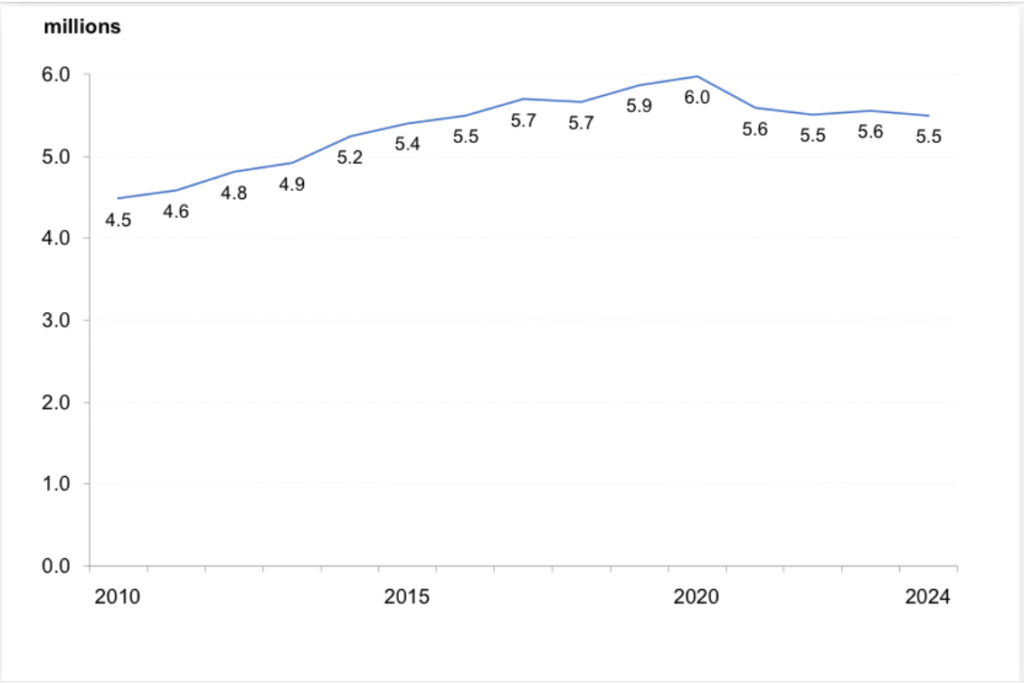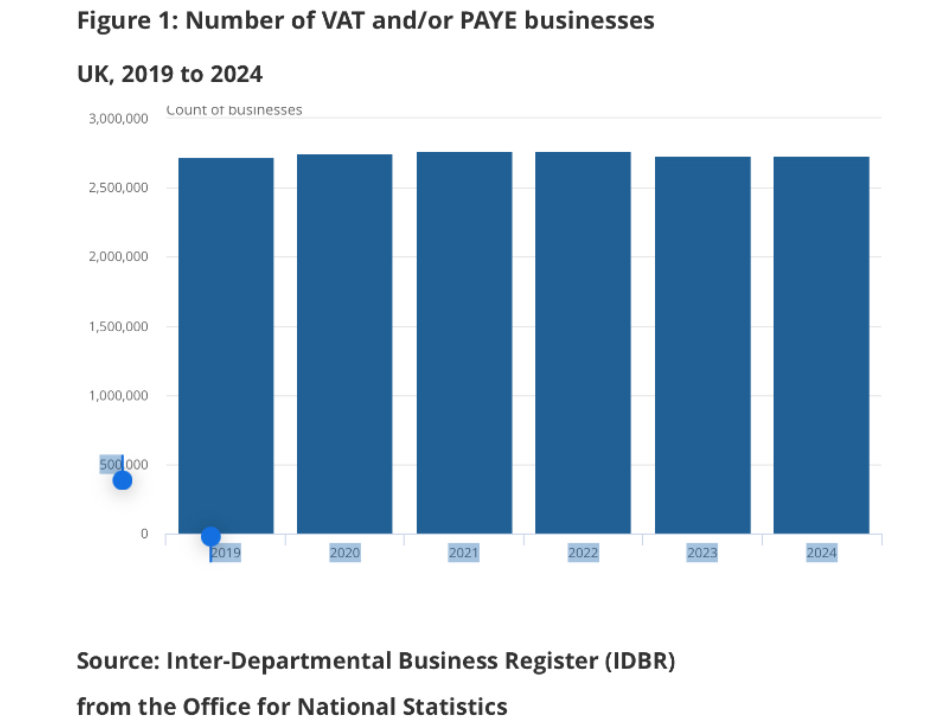You’re ready for change, you want more meaning, control, and flexible time, and you are thinking about how to transition from corporate to coaching business in the UK. This guide will walk you through a clear, gentle roadmap packed with tested steps and practical UK coaching advice for a successful career change.
Small pilots, smart pricing, and pro-level contracts make the shift easier, and by now, you should see this isn’t guesswork, it’s planning. You can protect your income, test offers, and start a coaching business in the UK without burning bridges.
Ready? Let’s dive in so you can see how to attract steady clients and build confidence quickly.
Why Professionals Leave Corporate Careers for Coaching
Many professionals choose coaching after years in firms, maybe to help others, set their own hours, and own their work. It is essential to understand the ‘why’ people move and what to expect.
This helps you identify the primary motivations, such as purpose, income control, and flexibility. If you ask, planning makes all the difference and yes! Career Coaching Is Worth It.
You can use this guide to learn how to transition from a corporate to a coaching business in the UK with steady steps, calm planning, and next steps.
Signs You’re Ready to Make the Shift
If you feel stuck or tired in a job that used to fit, or you’ve been wondering, How Can I Decide What Career Is Right For Me, then it might be time for a shift.
Maybe you want to help people solve real problems, or you dream of setting your own hours. It could even be because you want to pick clients you like.
Here are clear signs you are ready: you keep helping colleagues, you coach informally, you enjoy one-to-one chats, and you get energy from helping.
If you answer yes to most of these, you could be ready. Think about the feedback you get at work. Do people ask your advice often? Also, try a short paid pilot to test demand and learn fast.
That small test helps you shape your niche and price. In my view, a UK career change to coaching is safer when you test first. Keep a short list of wins and client outcomes to show proof, build confidence and track metrics.
Benefits of Running a Coaching Business in the UK
Running a coaching business in the UK can offer you freedom and purpose, as you have the flexibility to set hours and choose who you assist. You can scale from one-to-one sessions to group programmes and courses, helping you build a steady income over time.
Here’s another benefit: coaching taps into demand for skills and career support. The global coaching field is experiencing growth and expansion. For example, the International Coaching Federation reports tens of thousands of credential-holders and rising membership in 2024.
That global momentum often translates to more clients and increased trust for trained coaches. You can mix shorter sessions with longer programmes and can even work from home or rent space.
Many coaches build corporate contracts over time. That can be a significant revenue stream if you pursue it. Overall, a UK career change to coaching gives varied paths and more control over your time.
See also:
- How to Find Business Coach for Minority Entrepreneurs UK
- How to Network Successfully as an Immigrant Founder in the UK
Laying the Groundwork Before You Quit Your Job
You should test your idea before you quit. Don’t be like those who quit without a proper plan. Start small and keep income from your job while you build offers.
Do simple sessions and track feedback and payments. Make sure you save money and plan taxes.
Using time blocks to work on your business and keeping boundaries can also go a long way. You can even run a Coaching in The Workspace to test your ability.
By planning, you lower your risk and learn more quickly. This step helps you transition from a corporate to a coaching business in the UK into a real, paid practice and refine offers
Identifying Your Coaching Niche and Ideal Clients
Finding a clear niche helps you stand out from the crowd. Think of the people you like to help and the problems you solve best.
Write down five client types and pick one to test first. Don’t forget to use short interviews to learn about their pain points and create a simple avatar that lists their job title, age, goals, and urgent needs.
Test messages and offers with small ads or posts. This work helps you find coaching clients in the UK later because your messages will match real needs. Start with a concise, clear offer that demonstrates results and builds trust quickly.
For example, consider hosting a free workshop or a short, paid masterclass. Use LinkedIn posts to invite sign-ups. Ask for referrals from colleagues. Testing refines pricing and format, so repeat tests until you see traction.
Building a Personal Brand While Still Employed
You can build a brand while you keep your job. Start by posting small, helpful content and sharing brief case notes and lessons. Keep posts positive and professional to protect your role.
Use LinkedIn to showcase your thought process and connect with your ideal clients. A weekly post or thread on lessons and wins. Additionally, use a simple bio that states you help X with Y. This gradual approach reduces risk and builds trust.
It also teaches you how to market coaching services in the UK in the real world. Stay consistent and honest, and avoid hard selling while you are still employed.
You can build an email list for warm leads and even repurpose posts into short videos. Join niche groups and answer questions. These steps help you get soft leads and referrals. Over time, this builds a clear audience and a pipeline of warm people.
Creating a Financial Safety Net for the Transition
While learning how to transition from a corporate to a coaching business in the UK, money planning is the most important step; this could make or break your coaching business, especially when you are trying to Identify Your Career Goals and find a Fulfilling Path.
Start by calculating your monthly living costs and business costs. After which, you can set a runway target in months.
A common goal is to cover six months of personal expenses, but adjust this for your family’s needs. You can save for taxes and for slow months, and also consider keeping part-time consulting to ease cash flow. Build a buffer for tools and insurance as well.
If necessary, delay the complete exit until your income is steady. This plan helps alleviate stress when transitioning from a corporate job to a coaching business in the UK, allowing you to focus on your clients.
For example, set a monthly revenue goal that covers at least 70% of your expenses before you quit. Price packages to beat hourly rates.
Track cash weekly and cut non-essentials, review pension and benefits choices before you leave. If you make a plan, you reduce risk and gain clarity.
Setting Up Your Coaching Business in the UK
Although transitioning into a New Industry is a bit daunting, setting up properly keeps you legal and trusted. You need to register, select a structure, obtain insurance, and maintain simple accounts. Decide whether to work as a sole trader or a limited company and know basic tax rules and VAT thresholds.
Additionally, make a checklist and calendar for filings and renewals. This helps keep focus on clients while you build. Use this guide to learn about setting up a coaching business in the UK, the steps and what to do first. Then choose simple accounting software and a bank.
Legal and Regulatory Requirements for Coaching Businesses

Source:Gov.UK
You must register with HMRC and choose how you’ll pay tax. If you make over the VAT threshold, you must register for VAT, keep records of income and expenses, and file annual returns on time.
Get professional indemnity and public liability insurance. Following GDPR rules is a necessity when storing client data and obtaining explicit consent for notes and recordings. Keep contracts that state scope, fees, and cancellation terms.
In the UK, small businesses comprise the majority of the market. In 2024, there were about 5.5 million SMEs, many of which are sole traders.
That means many peers are setting up the right way, so copy good practice. When hiring staff, register for PAYE and adhere to employment law.
If you form a limited company, register with Companies House and file accounts annually. Consider joining a professional body too for support.
Choosing the Right Business Structure (Sole Trader, Ltd, etc.)

Source:ONS.GOV
Choosing the proper structure is crucial for tax and risk considerations. A sole trader is simple and low-cost, but you are personally liable. However, a limited company gives more protection but needs accounts and director duties.
Think about your income, pension plans, and liability risk. If you plan to hire or seek bigger contracts, a company may look more professional.
As of March 2024, approximately 2.72 million businesses were registered for VAT/PAYE in the UK, indicating a high number of formal setups.
So, you might need to check VAT thresholds and run a simple cash flow.
Review annual filing steps and basic costs. Many coaches start as sole traders and transition to a limited company as their revenue grows. That keeps admin low early and protects you later. Talk to an accountant early.
Also check liability insurance needs and client contract terms before you sign anything. Keep good records.
Read Also:
- How to Balance Your Job Search with Other Responsibilities
- Transitioning to a Fulfilling Career: Strategies for a Successful Career Transition
Essential Tools and Systems for a Coaching Practice
A few simple tools keep your practice smooth when learning how to transition from corporate to coaching business in the UK.
How about you begin with a booking and payment system that links to your bank? Use clear contracts for each client and select an invoicing tool, as well as a simple CRM or spreadsheet, to track leads.
You can utilise cloud notes and secure storage for client data, ensuring GDPR compliance. For content, use a simple email tool and social scheduler to stay visible.
Many UK coaches rely on accessible coaching business tools UK that keep admin low and client work high. Focus on one workflow for booking, payment, and follow-up so nothing falls through the cracks.
Automate reminders and receipts to save time and maintain a professional appearance. Use contract templates from professional bodies, a simple accounting app, and an online meeting tool. Test integrations and keep costs low. Over time, upgrade tools as revenue allows.
Marketing Yourself as a New Coach
Marketing is how you meet clients. Start with clear messages and simple offers. Please choose one or two channels and do them well. Track what works and double down. Focus on value, stories, and proof. Use short case notes and testimonials to show results.
Please keep your message simple and repeat it often. This step helps you learn how to transition from a corporate to a coaching business in the UK, attract the right people, and build a small email list that you can repeat. Note that career counselling is important during this process.
Leveraging LinkedIn and Social Media to Build Authority
LinkedIn is key for many UK coaches. Use it to share short posts, client stories, and valuable tips. Connect with people in your niche and join groups. Be helpful and consistent. Comment on posts and offer value in threads.
Use a clear headline that shows who you help and how. Post once or twice a week and reuse the content in email and other channels. Want to know a secret? Writing about small wins draws attention.
That steady presence teaches you market coaching services in the UK and builds trust over time. Add a clear call to action, such as a free 15-minute chat. Pin your best post or case study. Optimise your profile with a simple photo and concise bio.
Use videos to explain results. Use analytics to see which posts generate enquiries, then focus on those. Keep going weekly.
Networking and Partnerships in the UK Coaching Community
It’s important to Network for Career Advancement because it helps you find clients and partners. Join local meetups and national groups. Attend events and offer to speak or run workshops. Work with HR teams or small firms to run group sessions.
Build a list of potential partners, such as therapists, trainers, and consultants, who can refer clients. Be generous and share value before asking for work. That builds trust; also, partnerships can lead to steady retainer work.
Use referrals and case studies as proof when you pitch. Follow these coaching career change tips in the UK to grow your reach. Follow up with contacts within a week and keep a simple CRM note. Offer a free taster session to show value.
Create a referral email you can send to partners. Work with local groups. These actions build a steady pipeline. Send follow-up thank-you notes to each new contact.
Attracting Clients Through Content and Workshops
Content and workshops are powerful ways to attract clients. Run a short workshop on a clear topic and collect emails. Turn the workshop into a paid masterclass later. Share case studies and short tips in blog posts.
Use simple templates for follow-up emails. Workshops let people try your style and often lead to paid work. Use a clear CTA at the end of every session. For many coaches, this method is the fastest way to find coaching clients in the UK in the early months.
Keep iterating workshop content based on feedback and the questions people ask. For example, host a lunch-and-learn at a co-working space or run an online free session with a paid follow-up series. Repurpose session clips into social posts.
Ask attendees to provide testimonials and case notes that you can share. Over weeks, this builds authority and trust.
Learn More:
- How to Break into the Finance Industry as a Fresh Graduate
- 5 Essential Insider tips for a Smooth Transition into the UK
Common Pitfalls to Avoid in Your First Year
The first year is a year of learning. Expect bumps and keep learning. Watch for common mistakes, such as chasing every shiny tactic or undercharging.
Keep your focus on delivering results and getting referrals. You might want to try the 30-60-90 Day Plan: Your Secret Weapon for New Job Success.
Track income, clients and time spent. Stay humble and open to feedback. If you avoid these traps, you will grow faster and with less stress. These notes help facilitate a smooth transition to a coaching career in the UK and build consistent, small daily habits that compound over time.
Underpricing Your Services
Underpricing is a common trap. It signals low value and makes it hard to scale. Many new coaches set hourly rates that are too low or offer long free work. Decide on pricing based on outcomes you deliver, not time.
Price packages that solve a clear problem and show expected results. Use market checks and ask peers about rates. Raise prices when you get clear proof and testimonials. Don’t fear testing prices; you can consistently offer a lower entry tier.
When starting a coaching business in the UK, plan your pricing to suit your goals and lifestyle. For example, offer a short diagnostic call, a three-month programme, and a premium retainer option. Avoid offering steep discounts; instead, consider offering payment plans.
Track conversion from calls to paid work and adjust offers to improve margins. Price for your life, not for fear. Review rates biannually. Fair.
Neglecting Continuous Professional Development
Coaching requires skill growth. You can not just learn how to transition from corporate to coaching business UK, you must continue.
Continue learning after your initial training. Read, join peer groups, and get mentor coaching. Seek feedback and supervision. Attend workshops and mini-courses that add techniques and expand your toolset.
Keep notes on client outcomes and lessons learned. Renew skills and keep ethics clear. Join a body or a local chapter for accountability. ICF and other bodies report rising credential numbers and activity in 2024, highlighting the value of ongoing learning.
Set a small learning budget each year and treat it like a business expense. For example, aim for one supervision session a month and one short course each quarter. Read case studies and review recorded sessions to learn.
Keep a CPD log and note the impact on clients. This keeps your work fresh and helps you attract better clients. Do it monthly.
Overreliance on One Marketing Channel
Relying on a single channel is a risky strategy. One change in algorithm or policy can stop leads overnight. Spread your effort across two or three channels. Balance LinkedIn, email, workshops, and referrals.
Track which channel brings enquiries and sales. Keep a simple spreadsheet to record the source and outcome. Test a small paid ad budget and track cost per lead. Don’t spend too much before you know the conversion.
This approach makes your pipeline resilient and predictable. Want to know a secret? Most coaches grow faster when they mix content, workshops, and referrals. That helps market coaching services in the UK in a way.
Repurpose content across channels to save time and resources. Plan your week to include creation. Outreach. Follow-up. Nurture leads with a short email sequence. Keep partnerships. This mix keeps enquiries steady even when one channel slows.
Read Also:
From Boardroom to Breakthrough: Transitioning from Corporate to Coaching in the UK
Making the leap from corporate professional to thriving coach isn’t just about leaving your 9-to-5; it’s about reshaping your expertise into a sustainable business. Many professionals struggle with building structure, finding clients, and creating visibility in a competitive coaching market.
That’s where RKY Business Hub steps in. Our 10-week accelerator programme equips you with the roadmap to turn your corporate skills into a coaching brand with impact. Through 1-on-1 business coaching, you gain tailored strategies for defining your niche and packaging your expertise. Our branding and website services ensure your new venture stands out online, while our digital marketing and PR guidance amplifies your voice to the right audience.
We don’t just prepare you to launch, we help you sustain. With access to our networking events and community support, you’ll connect with other entrepreneurs, share insights, and grow your client base. Transitioning doesn’t have to be daunting. With RKY Business Hub, you have a partner who has helped 100+ businesses launch and scale successfully, and we’re ready to help you make your coaching vision a reality.
FAQs: How to Transition from Corporate to Coaching Business UK
How much does it cost to start a coaching business in the UK?
Expect an initial outlay of approximately £500–£3,000 for essentials, including a website, basic tools, insurance, training, and marketing. Budget extra for certifications or professional support over time.
Do I need a coaching certification to start in the UK?
Although there is no legal requirement, certification enhances credibility and demonstrates skills. Many clients prefer trained coaches; consider accredited short courses and ongoing supervision to build trust and referrals.
How long does it take to build a full-time income from coaching?
Typical timelines range from six to eighteen months with consistent marketing, focused offers, and steady client work. Results vary by niche, pricing, and the level of effort and persistence.
What are the fastest ways to get coaching clients in the UK?
Run targeted workshops, offer paid pilot sessions, use LinkedIn outreach, and ask for referrals. Combine these with email follow-ups and clear calls-to-action to convert leads and drive repeat business.


